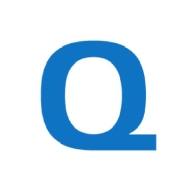


Dell ECS and Quantum ActiveScale compete in the object storage market. Dell ECS appears to have the upper hand in terms of scalability and deployment efficiency, while Quantum ActiveScale shines in data durability and lifecycle management.
Features: Dell ECS provides robust scalability, seamless integration with existing environments, and efficient data protection. Quantum ActiveScale offers enhanced data durability, sophisticated lifecycle management, and advanced data integrity capabilities.
Ease of Deployment and Customer Service: Dell ECS provides straightforward deployment with extensive support, facilitating initial setup for organizations. Quantum ActiveScale, despite offering reliable support, may require more time for deployment due to its complex features.
Pricing and ROI: Dell ECS presents a competitive setup cost with a scalable architecture that leads to cost-efficient expansion and a clear ROI path. Quantum ActiveScale may involve higher initial costs due to its advanced architecture but promises greater long-term ROI through superior data storage and reduced data loss risks.


FlashBlade is the industry’s most advanced scale-out storage for unstructured data, powered by a modern, massively parallel architecture to consolidate complex data silos (like backup appliances and data lakes) and accelerate tomorrow’s discoveries and insights.
Enterprise-ready. Future-proof. Data-first.
Dell EMC Elastic Cloud Storage (ECS) is a file and object storage solution from Dell EMC. ECS has been created to support both traditional and next-generation ecosystems equally. ECS boasts unrivaled economics, manageability, resilience, and scalability to satisfy the demands of today's next-gen, robust business enterprise ecosystems. ECS can easily be deployed in a software-defined model or as a turn-key appliance. ECS is software-defined and multi-layered for unlimited scalability. Every layer is abstracted and scalable with no single point of failure.
Everything is done within the software, which is containerized, using docker.
ECS is currently deployed using basic commodity hardware, which can easily be federated across as many as eight different locations and managed as a single resource. Additionally, ECS can also protect data at the site level, locally, disk, node, and rack levels. The federation enables a single global namespace with everywhere access to content. Applications can quickly rewrite in an active/active or everywhere active manner.
ECS is also able to be used as secondary storage or archival storage. This will free up valuable primary storage of data that is stale, redundant, or used infrequently, and the data will remain easily accessible. ECS uses policy-based tiering such as Data Domain, Cloud tiering, Isilon using cloud polls, and Geodrive, which give Windows systems direct access to ECS. Windows users can still use server message block (SMB) while leveraging the more expansive ECS storage.
ECS is enterprise-grade and offers valuable features such as retention, multi-tenancy, metering, monitoring, quotas, and more. ECS builds in robust security from the ground up and encrypts data. ECS is compliant with STIG guidelines and adheres to SEC rule 17A-4F.
ECS is an enterprise-ready solution that allows organizations to easily simplify object storage management and visualize information in intuitive new ways, and empowers your business to do even more with data. With ECS, enterprise organizations can deliver cloud-scale economics in-house that will lower total cost of ownership (TCO) and scale, creating greater levels of productivity and profitability.
Reviews from Real Users
One user, who is a deputy director at a tech service company, says ECS offers “good performance, reliability, and technical support”.
Dell EMC ECS is “a stable solution which is easy to scale, install and manage”, relates another user, who is a senior buyer at a tech service company.
"What I like best about this product is that it is a complete solution, both hardware, and software, by the same vendor," summarizes a system engineer at a tech services company.
StorNext File System
Increase productivity and reduce time to critical business insights with StorNext® File System. StorNext architecture delivers the necessary performance to get your business moving forward.
We monitor all File and Object Storage reviews to prevent fraudulent reviews and keep review quality high. We do not post reviews by company employees or direct competitors. We validate each review for authenticity via cross-reference with LinkedIn, and personal follow-up with the reviewer when necessary.